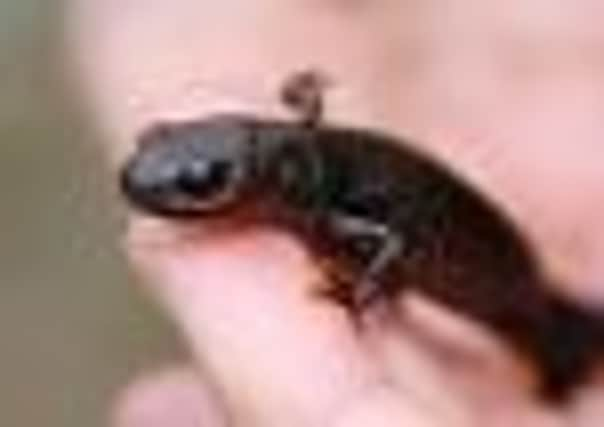Great crested newt numbers still falling


A year-long study commissioned by government conservation agency Natural England revealed that although the amphibians are widespread across lowland England, they are now uncommon.
The newts, which are protected by UK and European wildlife laws, have declined dramatically in the past 40 years in the face of loss of habitat and numbers are still falling, Natural England said.
Advertisement
Hide AdAdvertisement
Hide AdThe new analysis of where the newts are found, carried out by Amphibian and Reptile Conservation, reveals that many of the ponds with newt populations are in poor condition and are unlikely to sustain them or other wildlife in the future.
The number of ponds in the countryside has more than halved from historic levels of around one million to 478,000 today, and the decline has been compounded by poor water quality and too much shade in remaining pools.
Now just a quarter of the ponds occupied by great crested newts, which at up to 18cm long are the UK’s largest newt species and can live for up to 17 years, are judged to be in a good condition.
Great crested newts prefer large ponds with an absence of fish, areas clear of water plants, land vegetation cover and short distances between pond habitats.
Advertisement
Hide AdAdvertisement
Hide AdAndrew Wood, Natural England’s director for science and evidence, said: “This survey shows that although great crested newts remain quite widespread, they are still in decline and their long-term future remains uncertain.
“The comprehensive picture this survey provides will be essential for informing future efforts to conserve this charismatic, but vulnerable native species.”
Existing efforts to help the species include the million ponds project, which aims to restore ponds to the countryside.